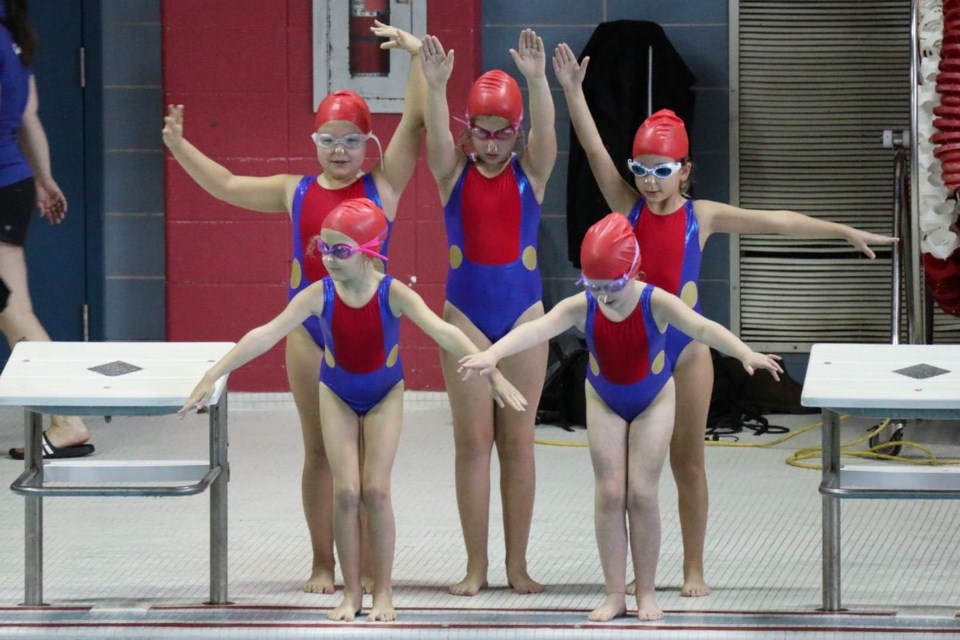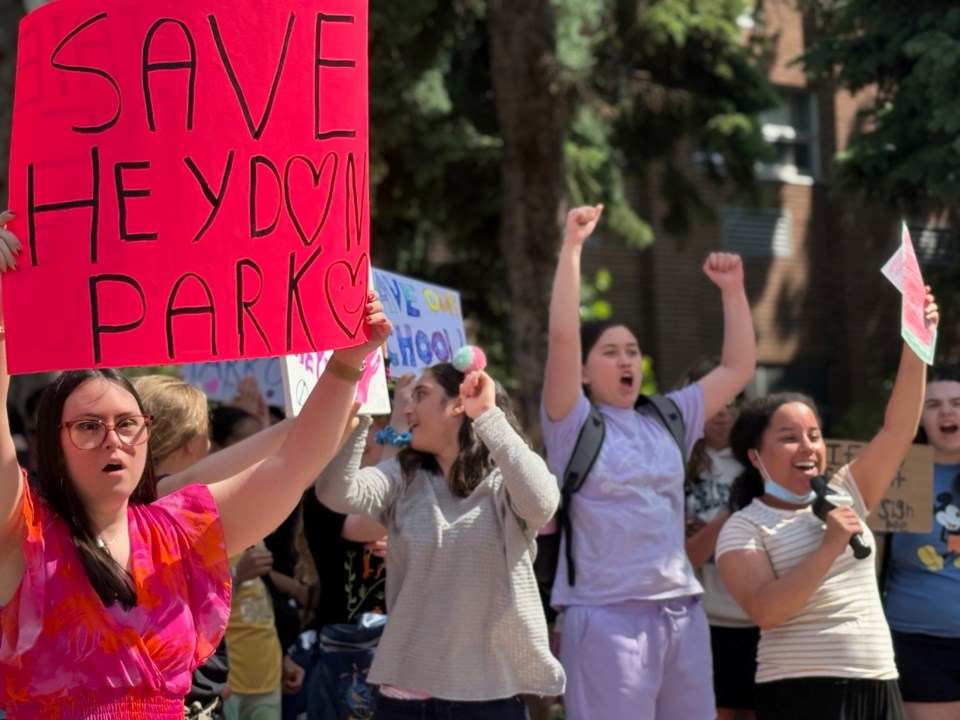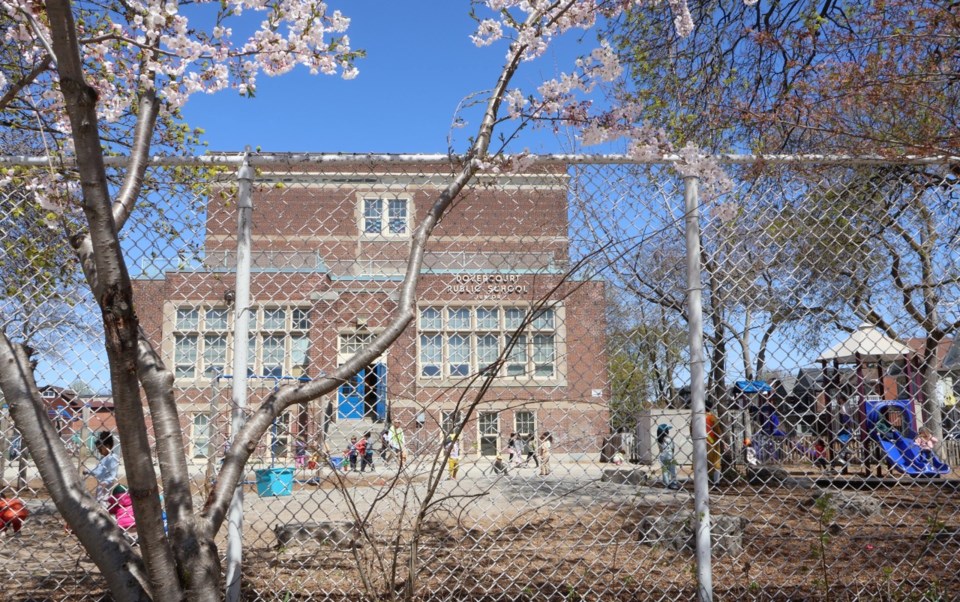This article was first published by TorontoToday, a Village Media publication.
Under considerable pressure from the provincial government, Toronto District School Board (TDSB) trustees voted to pass a two-year plan to balance the budget, which is likely to see some pool and music programs cut for the 2026-27 school year.
Should the plan be approved by the province, there will also be immediate cuts to student access to outdoor education facilities, an increase to continuing education program fees and a modest reduction in access to laptops.
The plan, approved in a 12-9 vote on Wednesday night, will result in a $2.3-million deficit in 2025-26 and a $0.3-million surplus in 2026-27.
The decision came after several months of debate about how to reduce spending after the provincial government rejected a prior plan, which would have seen the TDSB run a $58-million deficit.
To balance the board’s books, staff had proposed various cuts, including to pool access, music programs, technology, and outdoor education. While staff maintained that special education was not on the chopping block, they had also proposed increasing class sizes in some specialized programs for disabled students.
Trustees voted 9-8 on Wednesday evening against that plan to boost class sizes after an outcry from residents, teachers and concerned parents.
Several TDSB parents and advocates told TorontoToday on Thursday they are appreciative of the trustee's decisions to spare immediate reductions in pool access, music programs and special education, but remain concerned about the future.
Pool closure decisions deferred until next school year
TDSB staff had previously proposed shuttering board-run pools as soon as next year if the TDSB had not been able to operate them on a cost-neutral basis.
The plan would have left 37 TDSB-managed pools vulnerable, which sparked backlash from some concerned residents and swimming clubs, who were worried about losing pool access.
On Wednesday night, trustees appeared to try to strike a compromise — deciding to increase fees in the upcoming year for organizations that lease school pools, and deferring the potential for school pool closures until at least 2026-27.
Sonya Goldberg, a board member with the Toronto Artistic Swimming Club (TASC), which uses TDSB pools, told TorontoToday on Thursday that she was "relieved" by the aquatic plan.
Goldberg said the “phased” approach is appreciated and will ensure her club’s program is able to continue to operate as planned this year.
She stressed, however, that her group will continue to pressure the TDSB to keep pools open, as she argued residents need more access to swimming facilities, not less.

Music program to be cut in 2026-27
On Wednesday, the TSDB’s controversial plan to scrap the itinerant music instructor (IMI) program was approved — but pushed back to 2026-27. Through the program, the TDSB currently employs 74 specialized music educators who travel between schools.
Concurrently, trustees also approved a $1-million increase in the music budget for 2025-26, which the board said would be used to transition to a new approach to music education, which will see elementary teachers perform instruction, rather than the professional IMI musicians.
Stacey Sinclair, executive director of the charity, Coalition for Music Education Canada (CMEC), told TorontoToday she was also appreciative of the “delay” in the cut to the longtime music education program.
In late April, Sinclair’s organization launched a petition against the program cut, which struck a chord, garnering nearly 7,000 signatures.
Sinclair said she is glad the itinerant music program will remain intact for one more year and appreciative that her organization and allies will have more time to make the case for why the program should remain indefinitely.
A contentious special education vote
The TDSB’s proposal to increase class sizes for special education students was voted down after pushback from school community members.
Under the board’s 2025-26 special education plan, staff had planned to increase class sizes for diagnostic kindergartens — specialized junior and senior kindergarten classes for disabled students — from an existing cap of eight students per teacher, to up to 10 students.
They had also proposed an increase for specialized junior school classes for students with mild intellectual disabilities (MID) — from an existing 14 students per teacher to up to 16.
But the plan was not well-received. On Wednesday night, some trustees said they had been bombarded with complaints from concerned constituents who demanded the decision be reversed.
Leo Lagnado, a representative with Autism Ontario who has previously voiced his disagreement about the plan, told TorontoToday he was glad trustees voted, narrowly, to reject it.
Debate on the issue had been complicated by staff alleging trustees did not have authority to vote on the class size change — which they claimed was an “operational” decision — and were instead only to vote on whether the entire special education plan as proposed was aligned with provincial requirements, which they said was a “governance” decision.
Lagnado disputed this, suggesting staff were “gaslighting” trustees and “distorting” their role. He claimed the decision about class sizes is a matter of “policy direction” which he believes is under the purview of trustees, contrary to staff claims.
The board’s Special Education Advisory Committee Chair David Lepofsky agreed with Lagnado, claiming staff are overstepping their authority by effectively “eviscerating” the power trustees rightfully have.
With the vote on the plan having failed, it will now return to staff for revision — which could set the stage for a future vote on the same issue.
Separately, on Wednesday night trustees approved a $2-million increase to the board’s special education budget.
Trustee Weidong Pei (Willowdale) said the funds would be used to decrease wait times for special education assessments, improve individualized learning programs and enhance professional learning related to special education.
Lagnado said that while the size of the funding increase is modest, it’s a step in the right direction.

Outdoor ed, tech to see cuts
As part of the effort to reduce costs for next year, trustees also approved a proposal to permanently close the Sheldon Centre for Outdoor Education, an Allison, Ont.-based learning centre used by students, which will see 24 staff positions eliminated.
They will also temporarily close the Scarborough Outdoor Education School, which also provides students with opportunities for experiential outdoor learning.
In addition, trustees approved a plan which will see a pause on issuing Chromebooks to students next year and will increase course fees for continuing education programs, such as Learn4Life.
The board will also reduce operational spending by central departments by $9.5 million. In a press release, the board said the reduction would have a “limited impact on services,” though the expense reductions have not been detailed publicly.
The budget plan also includes a request to the provincial government for one-time use of $13.7-million resulting from the sale of a TDSB-owned property.
‘Standing up to a bully’
During debate on the budget, several trustees expressed frustration with what they described as an underfunding of education and statutory benefits for staff by the province, which they said is forcing them to make impossible decisions which impact student services.
The government has repeatedly countered that spending has increased in recent years — and that the TDSB needs to better prioritize.
Frustrated by the board’s spending, Minister of Education Paul Calandra had threatened to put it under the province’s control if the TDSB did not achieve a balanced budget
TDSB chair Neethan Shan said on Wednesday evening that there was “courage” among both his colleagues who voted both for, and against, the board’s budget.
Shan said his colleagues who voted “yes” were courageous in “choosing a path that will save local democracy,” by preventing the TDSB from coming under provincial control.
However, Shan said there was courage, too, in voting against the budget — as he did.
While some might view his decision as “irresponsible,” Shan said he saw it as his way of “standing up to a bully who is actually not prioritizing public education.”




